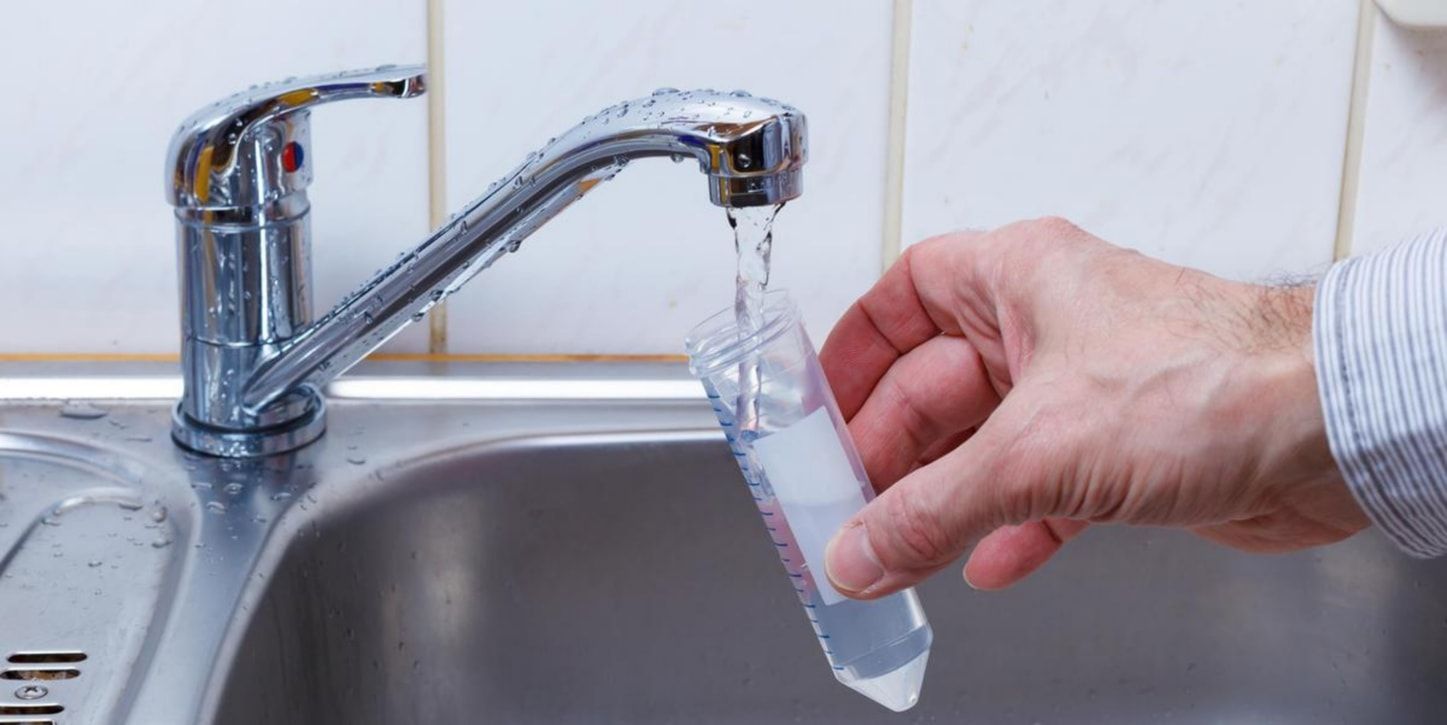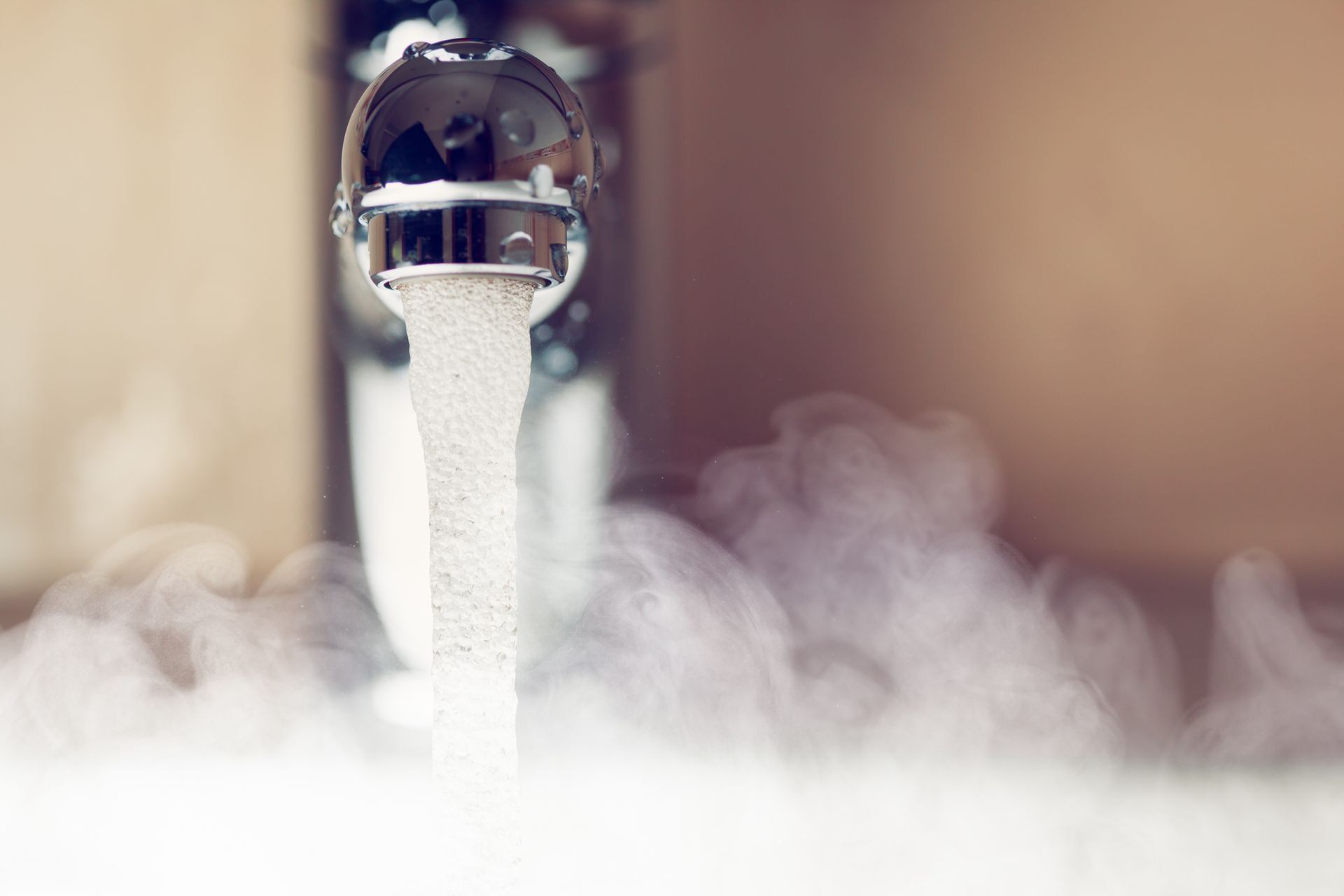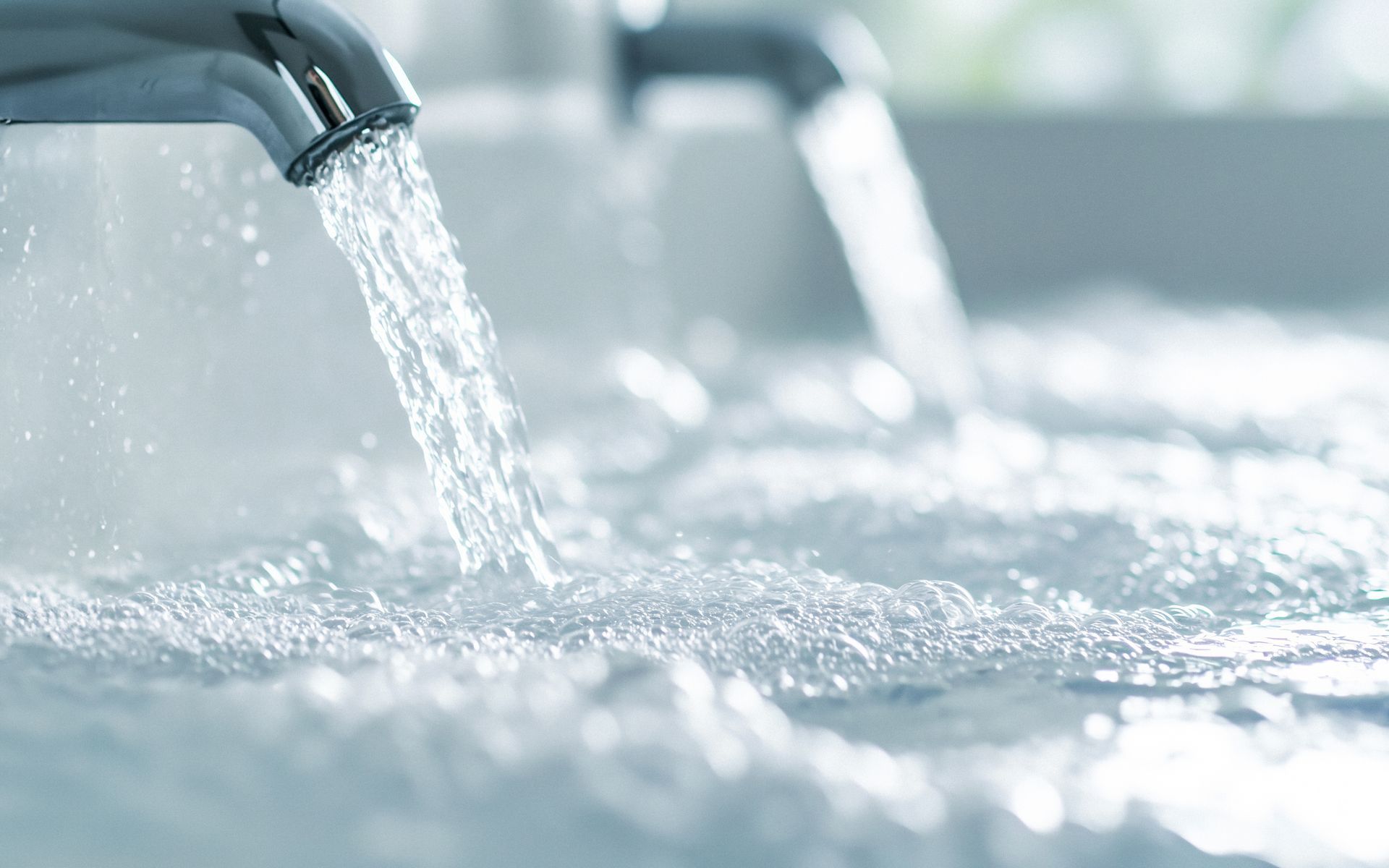Water treatment, water testing, well drilling and hydro-fracking services for VT, NH, and MA.
Do you need emergency well water service?
How to Fix When Well Water Smells Like Sulfur
If your well water smells like sulfur, it’s likely due to hydrogen sulfide gas. This article will guide you through identifying the source of the smell, testing your water, and implementing effective treatment solutions.
Key Takeaways
- Identify the sulfur smell in well water by testing both hot and cold water to determine its source, such as groundwater contamination or plumbing issues.
- Regularly test well water for contaminants like hydrogen sulfide and coliform bacteria to ensure safety, using both professional services and home test kits for comprehensive analysis.
- Implement long-term solutions, including whole-house filtration systems and routine maintenance of water heaters and wells, to effectively manage and prevent persistent sulfur odors.

Identifying the Source of Sulfur Smell in Well Water
Identifying the source of a sulfur smell in your well water is the first step. The sulfur odor, often compared to the smell like rotten eggs and the rotten egg odor, typically indicates the presence of hydrogen sulfide gas. This odor can stem from several sources, including groundwater contamination, issues within your plumbing system, or problems with your water heater.
Knowing the origin of the smell helps in selecting the appropriate treatment method. Test both hot and cold water separately and consider potential contamination from different parts of your water system to pinpoint the source. This helps determine if the issue lies in the groundwater, plumbing, or water heater.
Cold Water vs. Hot Water Smells
Testing hot and cold water separately can help identify the source of the sulfur smell. Smell the water from both hot and cold faucets after it has been sitting in the pipes for a few hours. This can help you identify if the smell is present in both or just one type of water.
A sulfur odor in only the hot water likely indicates an issue with the water heater. This could be due to sulfur bacteria growth in the water heater, which interacts with the magnesium anode rod to produce hydrogen sulfide gas.
If both hot and cold water have the sulfur smell, the issue might be groundwater contamination or a problem within the well and plumbing system.
Groundwater Contamination
Sulfur smells in well water can commonly result from groundwater contamination. When surface water containing organic material seeps into the groundwater, it can lead to the growth of sulfur bacteria, which produce hydrogen sulfide gas. This gas is responsible for the characteristic rotten egg smell.
Testing well water for hydrogen sulfide can confirm if groundwater contamination is the source. High levels of hydrogen sulfide might also indicate other bacteria and contaminants like coliform bacteria, posing broader water quality issues.
Testing and treating your water properly ensures it remains safe for drink water.
Plumbing System Issues
Problems in your plumbing system can also cause sulfur smells. Iron and sulfur bacteria can thrive in the warm, low-oxygen environments of private wells, water heaters, and water softeners. These bacteria can clog pipes, decrease water pressure, and cause unpleasant odors.
Maintaining your plumbing systems, water heater, and water softeners helps prevent bacterial buildup and sulfur smells. Keeping your plumbing system free from corrosion and bacterial growth maintains water quality and eliminates odors.

Testing Your Well Water for Contaminants
Testing your well water ensures it is safe for drinking. Frequent testing identifies early signs of contamination, allowing for timely intervention. Testing for contaminants like hydrogen sulfide and coliform bacteria can reveal broader water quality issues.
Hydrogen sulfide gas causes unpleasant odors and can be toxic and flammable at high concentrations. Accurate identification and understanding of contaminant concentrations are crucial for a safe water supply.
Professional water testing and home test kits are valuable tools for this process.
Professional Water Testing
Professional water testing is recommended for accurate contaminant identification. It offers detailed insights into contaminant types and concentrations, aiding in informed decisions about water treatment and maintenance.
These services often follow guidelines from organizations like the World Health Organization, ensuring that your water quality meets safety standards. Relying on experts ensures your drinking water is thoroughly tested and safe.
Home Water Test Kits
Home water test kits offer a convenient and cost-effective way to identify potential water quality issues. They enable basic tests for contaminants like hydrogen sulfide, offering an initial assessment of water quality.
Though useful for preliminary testing, home test kits should be followed by professional testing for comprehensive analysis. Home kits identify immediate concerns, while professional testing ensures thorough and accurate evaluation of your water supply.
Treatment Options for Sulfur Smell in Well Water
Various treatment options target different sources of sulfur smells in well water. Methods like shock chlorination, aeration systems, and carbon filters offer temporary and long-term solutions to improve water quality and eliminate odors.
Shock Chlorination
Shock chlorination temporarily adds chlorine to the well system to disinfect water and reduce sulfur bacteria. This method provides immediate relief but may need periodic repetition to remain effective.
Sanitizing the water heater tank with hydrogen peroxide, along with treating the well system, can eliminate odors and prevent future occurrences. Combining these treatments effectively reduces sulfur smells and improves overall water quality.
Aeration Systems
Aeration systems expose water to air, helping to eliminate hydrogen sulfide gas. They draw air into the water, increasing oxygen saturation and releasing dissolved gases. By reducing hydrogen sulfide gas, aeration systems effectively mitigate the rotten egg smell.
Aeration systems manage sulfur odors sustainably without requiring chemical treatments. They provide a long-term, eco-friendly method to improve water quality.
Carbon Filters
Activated carbon filters effectively remove hydrogen sulfide gas from water. They use activated carbon to absorb and remove impurities, including hydrogen sulfide, thus improving water quality.
Regular monitoring and replacement of carbon filters maintain their effectiveness. Routine replacement ensures continued reduction of hydrogen sulfide odors and provides clean, fresh water.

Maintaining Your Water Heater to Prevent Odors
Properly maintaining your water heater prevents sulfur odors. Problems with the anode rod and bacterial growth in the water heater can cause unpleasant smells. Regular maintenance and cleaning of the water heater reduce the risk of sulfur odors and keep your water fresh and clean.
Replacing the Magnesium Anode Rod
The magnesium anode rod in water heaters prevents corrosion but can react with sulfide in the water to produce hydrogen sulfide gas. Replacing the magnesium rod with an aluminum or zinc rod can reduce sulfur smells.
Switching anode rod types can alleviate the reactions causing hydrogen sulfide, keeping your hot water odor-free.
Regular Water Heater Cleaning
Regular cleaning of the water heater tank prevents bacterial growth that causes sulfur odors. Cleaning the tank maintains water quality and minimizes foul smells from bacterial growth.
Besides regular cleaning, replacing the anode rod with an aluminum or zinc rod reduces hydrogen sulfide production and ensures efficient operation.
Long-Term Solutions for Persistent Sulfur Smells
Long-term solutions are necessary to address persistent sulfur smells and ensure ongoing water quality. Regular maintenance of your water heater and well system, combined with advanced filtration systems, provides lasting relief from sulfur odors.
Installing a Whole-House Filtration System
A whole-house filtration system effectively manages hydrogen sulfide odors throughout your home. They provide comprehensive treatment, ensuring all water sources in your house are free from sulfur smells.
Different whole-house filtration systems, like sulfur-clearing filters and continuous chlorination systems, can be tailored to your specific needs for long-term relief.
Regular Well Maintenance
Regular well maintenance prevents sulfur contamination and ensures water quality. Routine inspections and maintenance by professionals can identify and mitigate potential contamination issues before they lead to odor problems.
Regular maintenance and inspections of your well infrastructure prevent hydrogen sulfide and other contaminants buildup, keeping your well water clean and fresh.
Summary
Addressing sulfur smells in well water requires a comprehensive approach, from identifying the source of the odor to implementing effective treatment options and maintaining your water systems. By testing your water, choosing the right treatment methods, and ensuring regular maintenance, you can eliminate sulfur odors and ensure the safety and quality of your drinking water.
Taking action to address sulfur smells not only improves the comfort and usability of your water but also contributes to the overall health and well-being of your household. With the right knowledge and tools, you can enjoy fresh, clean water free from unpleasant odors.
Frequently Asked Questions
What causes the sulfur smell in well water?
The sulfur smell in well water is primarily due to hydrogen sulfide gas produced by sulfur bacteria. Addressing this issue may require water treatment solutions to eliminate the odor.
How can I test my well water for contaminants?
To effectively test your well water for contaminants, consider using professional water testing services for comprehensive results, or start with home water test kits for a preliminary assessment. This ensures your water's safety and quality.
What is shock chlorination and how does it help with sulfur smells?
Shock chlorination disinfects well water by adding chlorine, effectively reducing sulfur bacteria and alleviating sulfur odors. This process offers a temporary solution to unpleasant smells in your water supply.
Why does my water heater produce a sulfur smell?
The sulfur smell in your water heater is likely caused by sulfur bacteria interacting with the magnesium anode rod, leading to the production of hydrogen sulfide gas. Addressing this issue can improve water quality and eliminate the odor.
What are some long-term solutions for persistent sulfur smells in well water?
To effectively eliminate persistent sulfur smells in well water, consider installing a whole-house filtration system and performing regular maintenance on your well and water heater systems. These steps will help prevent contamination and bacterial growth over time.
All Rights Reserved | Wragg Brothers Well Drilling


